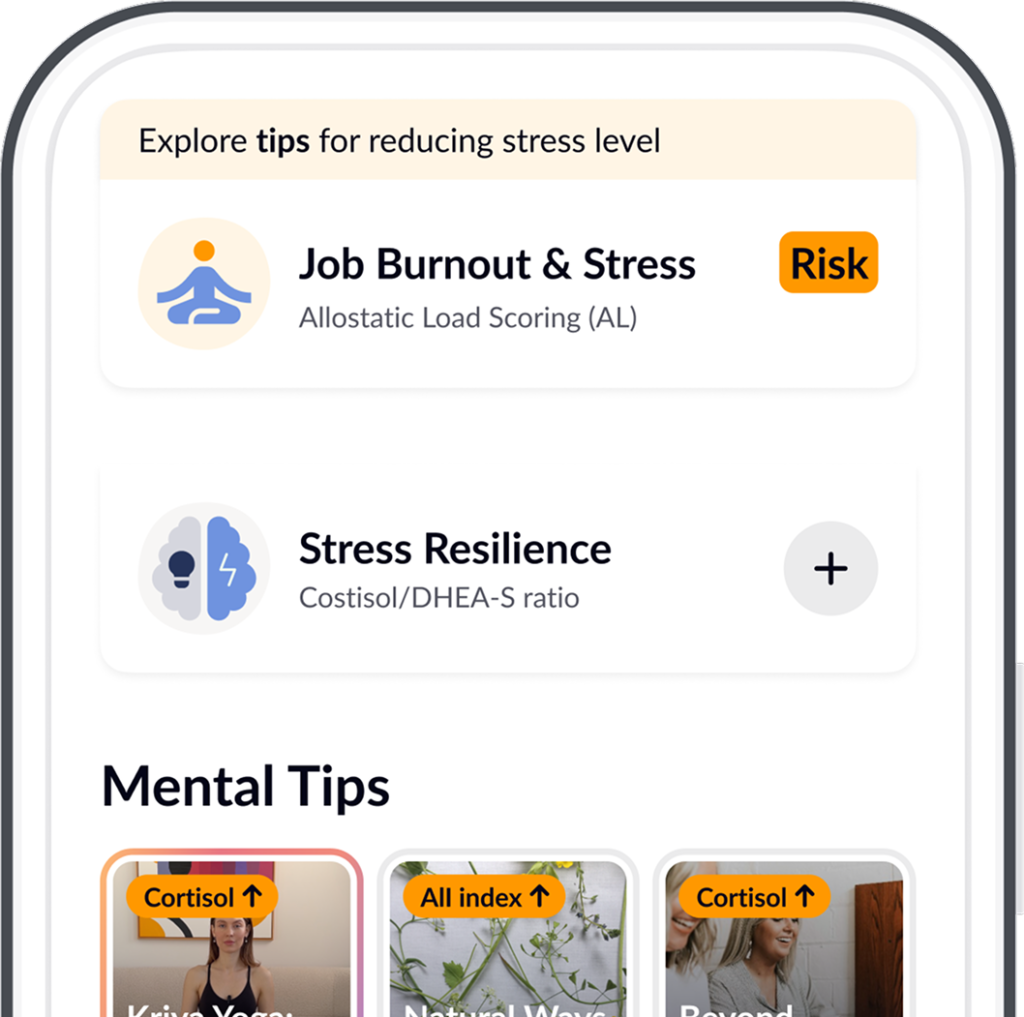How Stress Affects The Body

Today’s life rhythms and demands are often complex and require intense physical and psychological efforts. Generally, acute stress reactions in young healthy individuals do not cause any harm to their health. However, if the threat is not eliminated, such stimuli that exceed a specific person’s ability to adapt can cause significant damage1. But how dangerous is such harm and how exactly does stress affect the body?
Positive and negative stress
As mentioned earlier, not all stress has a negative effect. When the body experiences stress and uses it to overcome lethargy or increase productivity, stress becomes positive and healthy 2. This type of stress is also known as eustress. Therefore, stress is positive when it prompts us to adapt and thus enhances our adaptive mechanisms. This stimulating effect of stress gives athletes a competitive edge and speakers enthusiasm.
Stress is negative when it exceeds our ability to cope with it. Such stress exhausts the body’s systems and leads to behavioral or physical problems. This harmful stress is called distress. If an event triggers an excessive reaction, confusion, poor concentration, and anxiety, it leads to a decrease in productivity.
.
RELATED ARTICLES
Fortunately, under normal circumstances, within three minutes 3 after the threatening situation disappears and the real or perceived danger is eliminated, the “fight or flight” response subsides. During this time, our body relaxes and returns to its normal state. Heart rate, blood pressure, respiration, muscle tension, digestion, metabolism, and the immune system all return to normal. However, if stress persists after the initial “fight or flight” response, the body’s reaction enters the second stage.
At this stage, the activity of the sympathetic nervous system decreases, and adrenaline secretion decreases, but the secretion of corticosteroids (such as cortisol) remains elevated, exceeding normal levels. Finally, if stress continues and the body cannot cope with it, an organism’s energy levels are likely to decline, leading to a state of exhaustion. Depression sets in.
Depression
When it comes to depression, it is defined as experiencing 5 or more of the listed symptoms persistently for 2 or more weeks, causing significant emotional distress. We have already discussed depression and its diagnosis in the article “Depression Screening | Anxiety and Depression.”
Currently, depression is one of the most common mental disorders worldwide. It is estimated that 350 million people globally suffer from some form of depression 4. It is also the leading cause of disability worldwide. Additionally, it is the most costly mental disorder, accounting for 33% of all brain-related disease costs in Europe. This corresponds to 1% of the entire European economy (GDP) 5. According to the estimates of the Centers for Disease Control and Prevention in the United States, stress accounts for approximately 75% of all doctor visits 6. Patients often come with complaints such as:
- Back pain
- Headaches
- Heart problems
- Stomach disorders and digestive disturbances
- Sleep problems
- Fatigue, and so on.
But can stress cause serious harm to health?
How stress affects health?
Hypertension and Atherosclerosis
When it comes to how stress affects health, it can confidently be stated that prolonged negative stress can damage almost all organs and tissues. For example, chronic stress leads to sustained elevation of blood pressure and vascular hypertrophy 7. This means that the muscles that constrict the blood vessels thicken, causing increased blood pressure. Additionally, there is a tendency to respond to all types of stress with a vascular reaction.
In turn, chronically elevated blood pressure forces the heart to work harder, leading to left ventricular hypertrophy. Over time, this condition can damage arteries and lead to the formation of plaques (atherosclerosis). And this is just one of the many chains of influence of chronic stress on health.
» Tired and overwhelmed? Check your allostatic load — the science of stress impact.
How stress affects the body: Immunity and chronic inflammation
Elevated levels of stress hormones associated with chronic stress also suppress the immune system, directly influencing cytokine profiles 8. Cytokines are communicative molecules primarily produced by immune cells (see Roitt et al., 1998).
In response to a higher number of chronic stressors, pro-inflammatory cytokines disrupt regulation and lead to immune suppression.
As a result, this leads to slower wound healing, weaker antibody response to vaccination, and decreased ability to fight viral infections.
This means that psychological stress can actually induce an acute-phase response typically associated with infections and tissue damage. Such immune imbalance results in a state of low-grade chronic inflammation, which, in turn, can serve as a precursor to the development of other diseases. Diseases associated with both stress and inflammation include:
- Cardiovascular dysfunctions, including atherosclerosis and ischemic heart disease (IHD)
- Diabetes
- Cancer
- Autoimmune syndromes
- Mental disorders such as depression and anxiety disorders.
Chronic stress is particularly dangerous for elderly individuals.
Impact on the brain
Chronic stress has been shown to be associated with macroscopic changes in specific brain regions. For example, significant reduction in gray matter has been observed in individuals suffering from prolonged occupational stress 9. However, our understanding of the molecular pathways underlying these changes is still in the early stages of research.
It is worth noting that physical exercise can support brain health in counteracting stress-related depression. This can manifest as overall improvement in cognitive abilities, reduced risk of neurodegenerative diseases, and alleviation of depression.
Follow us on Facebook|| Instagram || Telegram || Youtube
How stress affects the body: Gastrointestinal disorders
It is known that stress has a significant impact on gastrointestinal disorders such as peptic ulcer disease (PUD) and ulcerative colitis (UC). Specific stressful life events are closely associated with the onset or exacerbation of symptoms in other common chronic digestive system disorders, including:
- Functional gastrointestinal disorders
- Inflammatory bowel diseases (IBD)
- Gastroesophageal reflux disease (GERD).
Furthermore, early-life stress in the form of abuse or trauma also plays an important role in predisposing individuals to the development of gastrointestinal disorders and IBD later in life.
How stress affects the body: Impact on genetic health
Finally, a recent study on stress conducted by Epel and Blackburn demonstrates that stress has a pronounced negative impact on genetic health by reducing the level of telomerase, an enzyme responsible for maintaining the length of telomeres, protective caps of DNA. Shorter telomeres are associated with inflammation, accelerated aging, and Alzheimer’s disease1011. Furthermore, the study revealed that individuals who experienced childhood maltreatment had shorter telomeres12.
🔍 How to Track the Effects of Stress on Your Body — And Take Control

Understanding how stress affects the body isn’t just about recognizing tension or mood swings. True resilience begins when you start observing how stress shifts your inner balance — the hormones it stirs, the damage it silently accumulates, and the emotional patterns it sets in motion. To navigate this terrain, you need more than awareness. You need a system.
You need to:
- Grasp the physiological roots behind fatigue, irritability, or foggy thinking
- Measure stress hormones and the body’s wear-and-tear response
- Log episodes of anxiety, insomnia, or panic attacks
- Track what actually helps — and commit to doing it consistently
Healsens empowers this journey. It’s more than an app — it’s your intelligent guide to decoding stress through science-backed insights. It brings together lab test results, emotional self-assessments, and proven tools for restoring balance. With Healsens, you can:
- Calculate your cortisol-to-DHEA-S ratio, a marker of chronic stress
- Assess your allostatic load — the accumulated stress damage to your body
- Record anxiety episodes, sleep disruptions, and moments of overwhelm
- See how your state evolves with each intervention, from breathing techniques to adaptogenic supplements
📲 All it takes is one step: download the app, log how you feel today, add any recent lab results, and choose one recovery practice to try. Even a few days of mindful tracking can bring clarity, calm, and a sense of control.
FURTHER READING
- The effects of chronic stress on health: new insights into the molecular mechanisms of brain–body communication
- Life Event, Stress and Illness
- Life Event, Stress and Illness
- World Health Organization. Depression
- Cost of depression in Europe
- Life Event, Stress and Illness
- STRESS AND HEALTH: Psychological, Behavioral, and Biological Determinants
- The effects of chronic stress on health: new insights into the molecular mechanisms of brain-body communication
- The effects of chronic stress on health: new insights into the molecular mechanisms of brain-body communication
- Dynamics of telomerase activity in response to acute psychological stress.
- Stress, Meditation, and Alzheimer’s Disease Prevention: Where The Evidence Stands
- Childhood maltreatment and telomere shortening: preliminary support for an effect of early stress on cellular aging.




